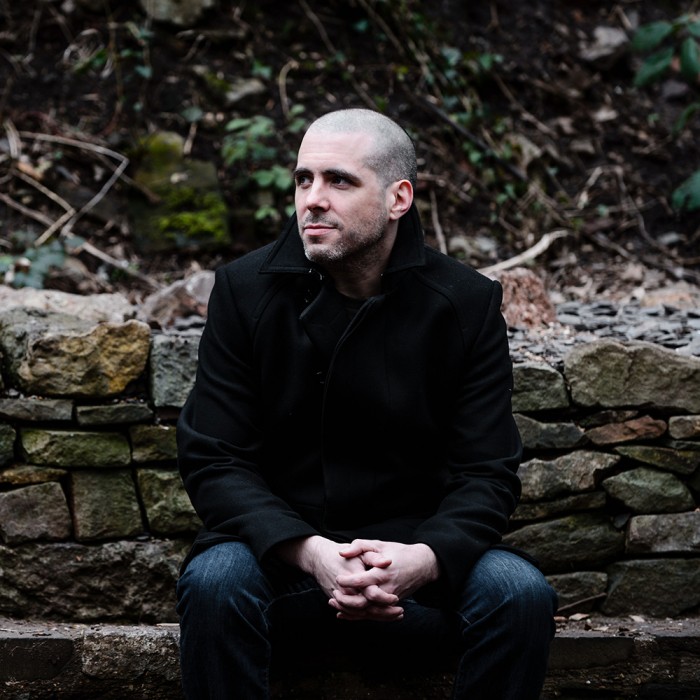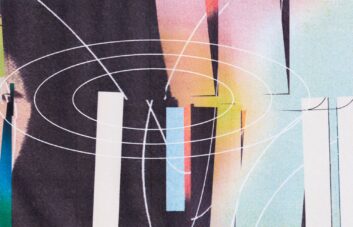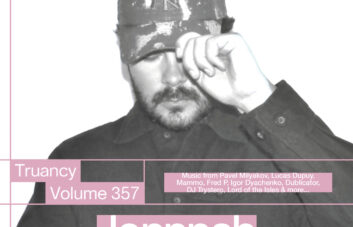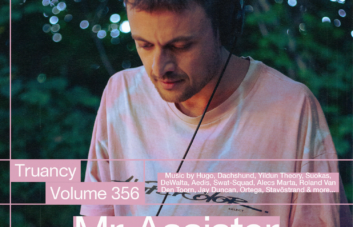The music of Phaeleh operates in a number of spheres at once. Beautifully and expertly crafted, it bursts with soul and character. His club music touches on a variety of strands of UK culture, from dubstep and bass to the jazzier tones of Four Tet and Floating Points, yet his latest release sees him burrow deep into ambient mode. We spoke to him about Illusion of The Tale, and how it seeks to take the listener away to another world while reminding them about the realities of this one.
Illusion of The Tale is really beautiful. When I first heard it in September I wanted to roll up in a blanket and hibernate. How do you feel about autumn and winter? “I’ve naturally always been drawn to it as I think I’m most creative when it starts getting colder and darker. I’m pretty nocturnal and only work at night so I like that there’s less sunlight at this time of year. I do think ambient music should give you a feeling like that, whether it’s creating a sense of comforting warmth in the winter, or helping you relax and unwind sat outside in the heat of the summer.”
It’s brimming with field recordings from across the globe – when capturing these did you have something specific in mind, or do you record constantly in the hope of finding something special? “It’s a mixture of both. I always bring a recorder on my travels, so sometimes if I find a nice spot I’ll just record and the sounds end up being more of an audio diary than something I have a creative goal in mind for. Other times I’ll go out to specifically record something but I’ll still come across sounds I hadn’t accounted for, so there’s always a bit of luck involved in terms of what I find on a given day, most of the time I don’t know what I’ll use until I get back to the studio and check it in a different listening space.
“I was recently in Canada recording some ambience at a lake, and a squirrel took a shine to the wind shield so I got some interesting sounds of him strutting his stuff in front of the recorder. That’s the kind of thing you really can’t plan for.”
There’s a feeling throughout, that it’s instantly familiar but doesn’t sound like anyone else. How do you think you touched upon this timeless quality? “It’s an interesting record for me, there are definitely tracks where I can hear my influences quite clearly. I think the way it was recorded certainly helped, pretty much everything was recorded live rather than just being sequenced from a computer and without sounding like a format hipster which I’m not really a fan of, the fact that most of it was recorded with hardware and instruments in real time rather than with software helped it have an authentic feel to it in my opinion.
“I think good ambient music can take you away from reality and into different spaces in your mind. Whilst I was working on tracks for the album, I tried to avoid having the ‘product’ or end result as a point of focus, I just let myself get lost in the music whilst I was writing it. It was a strange creative process, in terms of my beat-driven music, I would listen to any section repeatedly whilst working on a track. With the compositions on this album, I always played them from the start every single time so that I could experience the flow of them naturally rather than breaking things down into sections and not necessarily looking at the bigger picture.”
You’ve said the album is a response to the modern curation of daily life via social media (among other things). “We all suffer. We all have setbacks and difficulties, but we live in a world where people always want to pretend everything is fine.”
As I write it’s World Mental Health Day, so this really resonates with the idea of people living in silence, afraid to speak about their problems, or hiding behind a persona for self-preservation. Do you find music to be an escape? An anchor? “It’s always been a mixture of both. I think my earlier output, even before Phaeleh existed, was always a form of escapism, a therapeutic way to deal with whatever was going on in my mind at the time. I’d say my best known tracks are the ones written with emotional events leading up to them, so to be able to channel those feelings into something creative certainly helped me get through some trickier times.
“It’s an interesting scenario, as whilst music had traditionally been that form of escape, as I’d been doing it for longer and putting out more releases I found myself in situations where it became the source of a lot of insecurities and increased bouts of depression. I definitely lost a few years adjusting to the pressures of being an ‘established’ artist and the conflict between true creative freedom and what you perceive as the expectations and demands of your audience. Another aspect I found hard to deal with was the contrast between living quite a solitary existence and suddenly being on stage in a crowded room. You’re interacting with lots of people, getting your ego massaged by enthusiastic fans, but then you get home and you’re back in that isolated environment. That’s something I’ve struggled with in the past, but I do feel that recently I’ve started to shake those issues off and have gotten back into a state whereby music is a more personal, enjoyable experience and by pre-empting the potential comedowns I seem to always have after releases or tours are finished, it’s become a lot easier to deal with.
“In terms of my own mental well-being, I’ve never felt any shame discussing it, which so many people find strange. They will happily tell you they’ve got the flu or they broke their arm, but the stigma associated with mental health and the amount of ‘brave-facing’ people do genuinely confuses me. Music has always been the only constant in my life, so I do feel lucky that I’ve had that as a creative outlet over the years.”
Ambient could be seen to be having a “moment” right now, as people have consistently written pieces on how it’s in vogue over the past year or so. I don’t think that more people are making it or that it’s better than at any other time (there’s always a ton of it on Bandcamp at any given time), but more people seem to be paying attention – see that recent Pitchfork list. What are your thoughts on this (non) trend? “I think every style comes and goes into fashion. I think I’ve been lucky that there’s so much focus on it at the moment. Ambient is no different to other styles, the formula isn’t going to change much over time, but the focus will come and go. I’m quite lucky as I’m so out of the loop I don’t really notice these trends, but I had a few people tell me in the lead-up to the album being released that I’d timed it quite well as more chilled releases were apparently quite popular at the moment.”
It’s not your first foray into ambient-focused work, after the album Somnus and your Slumber Session mix. Do you find your working methods change between beats and beatless music? “It does in some ways. The process for my ambient stuff always feels slightly more natural and organic, and even making stuff you’ll never release still feels like time well spent. In the past I think the drum-based stuff sometimes got complicated by worrying about the next potential release or what people will make of it, no matter how hard you try not to consider that stuff. My more recent beat-driven output has become a lot more similar to my approach to ambient stuff, as in it’s about capturing a moment rather than worrying too much about the end result early on. I think my ambient output also has a lot more live recordings which aren’t tweaked to death, which I’ve done in the past with my beats-based output.”
The recent Ransom Note mix gives a suggestion but what sort of ambient artists are your comforts and inspirations? “I think the biggest three will always be Brian Eno, Boards of Canada and the various guises of Aphex Twin. I think my comforts in terms of their ambient output will always include those artists along with people like Pole, Autechre, Jan Jelinek and Philip Glass.
“There’s been a constant narrative throughout the years from different artists who have done interesting things for me texturally, which have probably had a subconscious influence. I guess if you go back that could include Astrobotnia, Ryoji Ikeda, Hervé Boghossian, Tangerine Dream, Brothomstates, Cylob, Drexciya and stuff from labels like deFocus and Boltfish through to acousmatic composers like Francis Dhomont, Dennis Smalley, Jonty Harrison and Pierre Schaeffer.”
You’ve another album on the way too, I believe? Can you tell us about that? “There’s a potential album that just needs tidying up and finishing. I’ve been close to releasing an album a few times over the last few years, I just need to try and resist the usual urge to start something from scratch again.
“Illusion of the Tale was the first release of mine where it wasn’t compromised in some way, from deadlines, external pressures or just physical and emotional exhaustion. I think it’s a much stronger release as a result. I want to make sure the next album isn’t rushed out and has the same attention to detail. I do think you give up a part of yourself with each release, so I just need to make sure I’ve got the energy and focus required to jump straight back into another album and the eternal creative frustration of striving for a level of perfection that can never be attained.”




